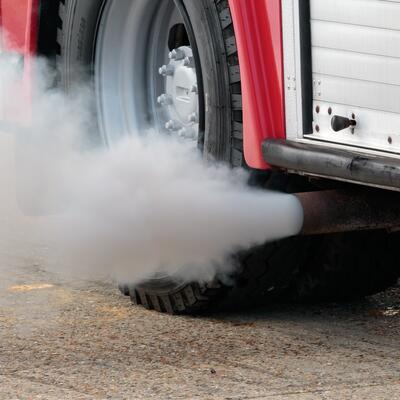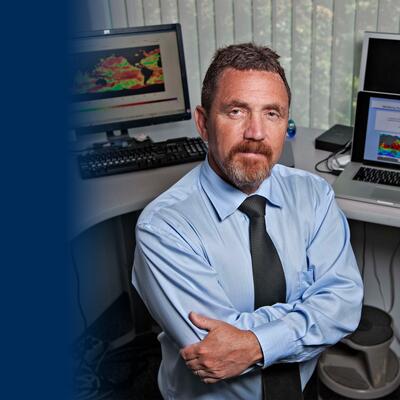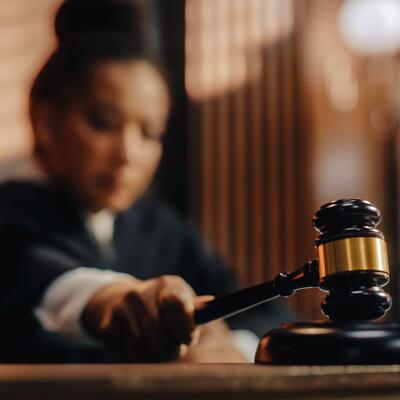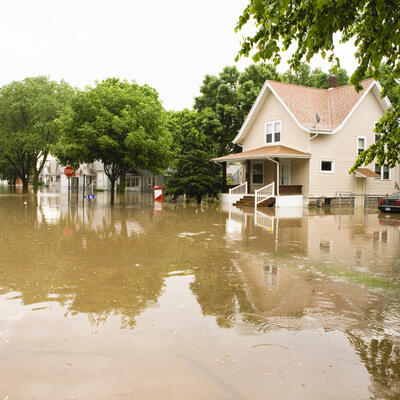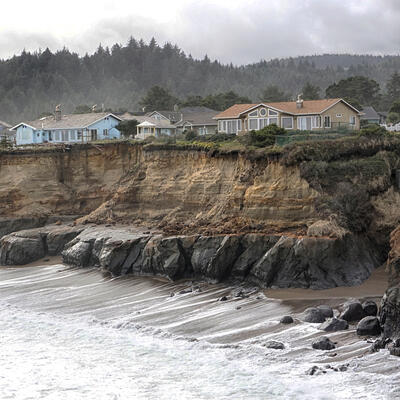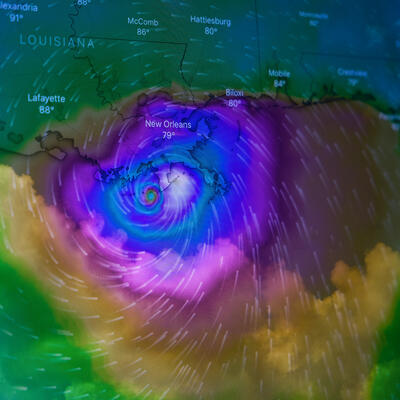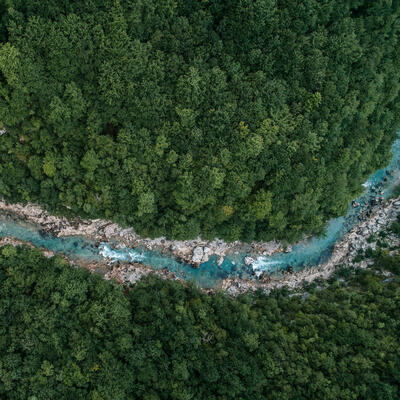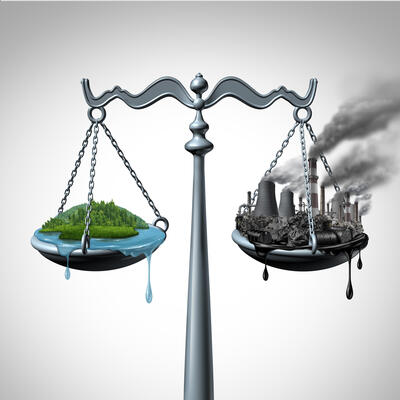
Law and Disorder: Climate Change in the Courts
Guests

Tanisia Coachman

Michael Gerrard
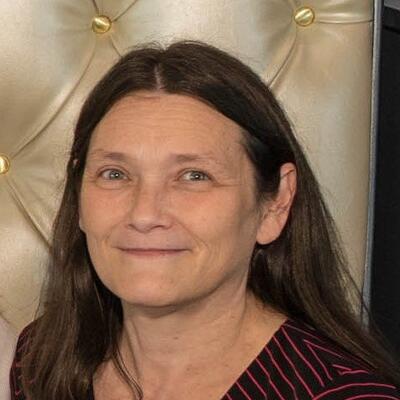
Laura Tuggle
Summary
Climate change is affecting every aspect of our lives - our environment, our health, our economy and our future. And now, it’s even creeping into our courtrooms. Climate change has brought on a wave of new reasons to go to court, for those on both sides of the issue.
In Julian vs. the United States, youths sued the government for violating their constitutional right to life and liberty by encouraging climate-altering activities. Fossil fuel companies are fighting back by advancing new laws that have a chilling effect on the activist movement – such as an Oklahom law that equates protests with domestic terrorism.
“Basically what the bill did is it took actions that are somewhat common in environmental activism movement… sort of blocking a gate or, in the case of Standing Rock, a protest [that] bleeds onto private land,” explains reporter Nicholas Kusnetz. “It took something where there were previously kind of misdemeanor minor charges, and suddenly they became really serious charges.”
The increase in weather-driven disasters over the past few years has given rise to a whole new branch of legalese, known as “Disaster Law.” Laura Tuggle of Southeast Louisiana Legal Services helps disaster survivors navigate the muddy waters of federal relief, insurance claims and inheritance rights. She recommends that people not wait for a disaster to get their affairs and paperwork in order.
“Even if everybody knew that grandma wanted her niece or her granddaughter to inherit her home, if that's not written down in a will that's not what's going to happen by operation of law,” Tuggle warns.
Related Links
Our Children’s Trust: Juliana v. United States
Sabin Center for Climate Change Law at Columbia University
Toledo, Ohio grants Lake Erie the same rights as people (Smithsonian)
A Look Back at the Tax Day Flood of 2015 (Houston Chronicle)
Harsh New Anti-Protest Laws Restrict Freedom of Speech (Nicholas Kusnetz, Washington Post)
Portions of this program were recorded at The Commonwealth Club of California in San Francisco.
Full Transcript
Greg Dalton: This is Climate One, changing the conversation about energy, the economy, and the environment.
Greg Dalton: Does a river have constitutional rights? In some states, stewards of nature are finding creative ways to take climate change to court.
Michael Gerrard: Conventionally if you want to sue to challenge water pollution you get a fisherman, a human being who’s directly hurt or if it's air you find someone who has asthma. But in a couple of other countries they've established that natural features themselves have rights.
Greg Dalton: But fossil fuel companies are fighting back by advancing new laws that equate protests with domestic terrorism.
Nicholas Kusnetz: Protesters were in canoes and kayaks...they were pulled off the water and literally pulled out of their canoes by state law enforcement officers who are actually off-duty and working for a security contractor hired by the pipeline company.
Greg Dalton: Law and disorder: climate change in the courts. Up next on Climate One.
Greg Dalton: Do Americans have a constitutional right to a clean environment? Climate One conversations feature oil companies and environmentalists, Republicans and Democrats, the exciting and the scary aspects of the climate challenge. I’m Greg Dalton.
Greg Dalton: Climate change is affecting every aspect of our lives - our environment, our health, our economy and our future. And now, it’s even creeping into our courtrooms. Is our legal system equipped to handle the changing climate?
Michael Gerrard: I am anticipating there are going to be professional malpractice lawsuits against architects and engineers who designed buildings and other structures that don't withstand the extreme weather events that are now easily foreseeable.
Greg Dalton: Climate change has brought on a wave of new reasons to go to court. In many states, legislators backed by oil interests have introduced bills designed to have a chilling effect on protests against new fossil fuel pipelines and other infrastructure. And survivors of disasters like Hurricane Katrina are finding that they may not have the rights they thought they did.
Laura Tuggle: Even if everybody knew that grandma wanted her niece or her granddaughter to inherit her home, if that's not written down in a will that's not what's going to happen by operation of law.
Greg Dalton: On today’s program, we’ll talk about climate-related lawsuits currently making their way through the legal system. I’ll be joined by some of the people working to ensure that climate issues - and those most affected by them - have their day in court.
In one case dating back to 2015, twenty-one youth plaintiffs filed suit against the U.S. government’s executive branch, including then-president Barack Obama and now Donald Trump. The case, known as Juliana vs. the United States, claims that the government has violated young people’s constitutional rights to life and liberty by encouraging activities that lead to climate change. Is there any legal basis for a constitutional right to a safe climate?
Michael Gerrard, who Directs the Center for Climate Change Law at Columbia University, has been following the case.
PROGRAM PART 1
Michael Gerrard: Most environmental law professors were quite surprised that the District Court found that there might be a constitutional right to a clean environment. The judge found it in the due process clause of the Fifth Amendment, but it's a novel theory.
Greg Dalton: And one of the -- my understanding one of the other theories they’re trying to do is there is the public trust doctrine which is long-standing for water back to the code of Justinian and Roman times that's well-established for water as a public right public trust. They’re trying to basically transfer that from water to air saying we have a right to a safe climate. Is that a legal stretch?
Michael Gerrard: Very few courts have found that the public trust doctrine applies to the atmosphere and few courts have found that the public trust doctrine gives government an affirmative duty to do something. Usually it's a protective measure, you can’t build in the waterway that kind of thing. It's much harder to use it to compel the government to act.
Greg Dalton: Right, okay. And yes, it keeps going forward to surprise of many people. Another area where climate is in the courts is voters in Toledo, Ohio, voted to put a measure on the ballot to establish whether Lake Erie has legal rights and this is not the first time there's other, you know, Ecuador established the rights of nature in its Constitution. There's something, you know, the international efforts to try to give nature a voice establish the rights of nature and law. What do you think about that?
Michael Gerrard: That too is a novel effort in the United States. Conventionally if you want to sue to challenge water pollution you get a fisherman or someone who is a human being who’s directly hurt or if it's air you find someone who has asthma. But in a couple of other countries they've established that natural features themselves have rights. The most recent efforts in the U.S. have been on behalf of chimpanzees. There have been some trying to get habeas corpus for chimpanzee. None of those have succeeded either.
Greg Dalton: So at your Center for Climate Change Law at Columbia University, you have a Silencing Science Tracker. I looked at the list it’s 33 pages long includes things such as requiring “balance teaching materials in Florida budget cuts at NIH, NOAA, NASA, FEMA, science panel suspended” what are some of the really striking cases where science has been silenced in the last couple years?
Michael Gerrard: Well, since Trump took office he has and the people he has appointed have really been assaulting science. They’ve been appointing people who are not only nonscientists but hostile to science. Two important positions at EPA and other federal regulatory agencies. They have been completely disregarding the viewpoints and the findings of the data of actual scientists. And I've been working very, very hard to push back against truth. And so a few years ago, even before the administration we helped incubate a group called the Climate Science Legal Defense Fund whose purpose is to provide pro bono legal help to scientists who are being attacked by deniers and so forth. And the effort to go after climate scientists has escalated since Trump took office.
Greg Dalton: And that legal that climate science legal defense fund is really interesting because I've talked to some of the people it’s on the webpage, including Ben Santer, who works at a government laboratory. And they are often harassed by freedom of information requests that require a lot of their time to comply with and, you know, federal employees and they have legal representation through their lab but the interests of the national lab don't always align with the personal interests of the scientists. So to tell us a little bit about how a scientist can be facing harassment that consumes their time and potentially their own personal money.
Michael Gerrard: Right. If a scientist is employed by a government agencies such as the national lab or a public university then people who want to give them a hard time can file a request under the federal or state public records law, freedom of information law. And it could require a great deal of time for them to go through their emails. It’s not just their articles they want; they want all the personal emails. So it’s very burdensome and many of the efforts to do that against scientists have been struck down in court through the efforts of the climate science legal defense fund and others. A few of them have been upheld and it's quite burdensome and it’s taking the scientist away from their actual work.
Greg Dalton: There's also the Climate Deregulation Tracker lots of things on there, relaxing methane waste prevention, relaxing emission controls on new coal plants. I don't think there's many new coal plants being built, but they’re... repealing the lightbulb efficiency regulation from the Department of Energy. Again a long list of all the deregulation that's happening across the federal government right now. What are some of the standout items there?
Michael Gerrard: Well, the Trump administration is systematically trying to repeal all of the things that the Obama administration was doing to reduce greenhouse gas emissions and comply with the Paris goals. So the most important ones are the attempted to roll back in motor vehicle emissions standards and the attempted withdrawal from California of its ability to have stronger standards and the regulations on existing coal-fired power plants. Those are the two that have the greatest quantitative impact.
Greg Dalton: And the one with California's basically is trying to repeal really going for the jugular because no administration has ever challenge California's ability to have an exemption from the Clean Air Act to have stricter standards, Trump administration is going after that. In fact I’ve interviewed Andrew Wheeler about that. It's really partly a state versus federal like a lot of things in American history and law that the rights of the federal government, states government. So how do you see this playing out in climate with states trying to regulate certain things and the federal government is coming in with preemption or saying yes you can, no you can’t.
Michael Gerrard: Yeah, I mean the current administration says it's in favor of states rights except their only really in favor state rights when that helps the polluters. But when it goes in the other direction they say wait a minute. When the Clean Air Act was passed in 1970, California was grandfathered from federal preemption because they had taken such measures against Los Angeles smog. And so ever since there’s a tradition that California's been able to adopt its own stricter standards and other states consigned under the California standard.
Greg Dalton: And 18 other states do.
Michael Gerrard: That's right. And so it’s almost half of the motor vehicle market so it makes an enormous difference. The auto companies don't like what the Trump administration is doing either because they need the certainty about what kind of cars to build. It’s more some of the oil companies that would lose business if you have more fuel-efficient cars. And consumers who save a lot of money by more fuel-efficient cars have to spend less money at the gas tank.
Greg Dalton: Right. You've also written about legal pathways for decarbonizing because a lot of what we’ve seen has happened will a state will pass renewable portfolio standards and then Koch funded groups or others will come in and try to roll those back. That's happened in Arizona there’s been back and forth, back and forth that seem to be what you're doing is trying to point out some legally defensible ways for cities and counties to decarbonize in ways that they’re on solid legal ground. What are those pathways?
Michael Gerrard: So we've identified more than a thousand specific measures that can be done at the federal or the state or the local levels. There are three pillars, the first is energy efficiency. The second is a deep carbonizing the electricity supply so that's renewables maybe nuclear but not fossil. And the third is moving to electricity away from gasoline and liquid fuels and gaseous fuel. So there are they say about a thousand of these pathways and we are now going out to try to implement them by recruiting pro bono lawyers around the country to do the drafting of the lot of ordinances of the statutes and regulations that would implement this. We've also started just now something called the renewable energy legal defense initiative which is providing pro bono legal help to community groups that want wind and solar and so forth of their communities that are being opposed.
Greg Dalton: Interesting because again Koch funded groups American Legislative Exchange Council others tend to come in and try to repeal these sorts of things. So do you encounter ALEC, is ALEC still out there and as strong as it ever was because there was a period there where some Silicon Valley companies walked away from ALEC because of partly because of its climate stance.
Michael Gerrard: Yes, they're still at it and we are trying to create almost a counter ALEC by coming out with proposed statutes and regulations and ordinances that go in exactly the opposite direction. So where there are friendly lawmakers who want to introduce climate positive actions they’ll have things that we can give them to work on.
Greg Dalton: And some resources behind it because ALEC seems to have put renewables on the defense a lot of the time.
Michael Gerrard: That's right we want to go in the other direction it's all pro bono, but we think it’s important work.
Greg Dalton: If you’re just joining me, my guest today on Climate One is Michael Gerrard. Faculty Director of the Sabin Center for Climate Change Law at Columbia Law School.
There seems to be a lot of uncertainty in the law in the future. I came from Miami recently and just boggled they’re about to build the tallest building in Miami right in the waterfront of the middle of a harbor. And I have to think about future legal liability there's a lot of building that's being done where you think a rational person would not put new buildings knowing what scientists know about sea level rise. I have to think about the legal skirmishes in the future about who knew what, when, who’s liable, is it the developer, is it the insurance company, is it the mortgage lender, is it the buyer. It just seems like and also as rising tides there’s a question of, you know, what is public domain what is private property what is public domain. Can you look into that crystal ball a little bit and see future skirmishes about liability, you know, bad things are gonna happen. Who knew what when and who is responsible?
Michael Gerrard: It hasn't happened yet but I am anticipating there are going to be professional malpractice lawsuits against architects and engineers who designed buildings and other structures that don't withstand the extreme weather events that are now easily foreseeable. Very often in commercial development projects somebody builds it and they sell it and are gone. And it may be years later that the injury happens and the statute of limitations and the statute of repose has passed and it was too late to sue. But I think we’re also gonna see landlord-tenant disputes. We’re seeing already a huge number of insurance disputes. There are a couple of lawsuits pending against oil companies, not because of the greenhouse gas emissions, but because their oil tank farma seem to be vulnerable to extreme weather events that they haven't prepared for. And that could be a violation of the Clean Water Act and the Oil Pollution Act because of the great risk that a big storm will cause the tanks to burst and cause oil spills.
Greg Dalton: So there's a lot of legal skirmishes to come and it seems like there's in our system kind of the deep pockets often win have to have the best lawyers and, you know, who's gonna be there representing the little person who maybe bought a condo bought some property we’re already seeing deflation, slow deflation in coastal property prices. Where's the little guy gonna get or little person gonna get representation in something like that?
Michael Gerrard: Yeah, that is a real problem and the cases are different enough that it may not work for a class-action. So there are a lot of people who are going to lose a lot of money there. Their biggest investment is their home and if their home is underwater literally as well as figuratively they’re really in bad shape.
Greg Dalton: Climate disrupts so many things. We’ve talked a little bit about property, liability, responsibility. Are there areas where you think new emerging areas of law will come around because climate is changing power changing responsibility changing the way financial transactions happen?
Michael Gerrard: We’re gonna see a lot of disruption of supply chains all across the world and that's going to lead to litigation or a factory has to shut down production because they don’t have the parts that or the factory was flooded out. That happened some years ago it turned out most of the hard drives are manufactured in Thailand and the factories were all flooded out and caused major problems. Agriculture is one area that is especially vulnerable and there are many crops that are really in danger lots of fancy food processing operations rely on crops that are grown halfway around the world and if they don’t have them that's a big problem. It’s gonna be enormously disruptive.
Greg Dalton: You’re listening to a Climate One conversation about climate change in the courts. That was Michael Gerrard, Professor of Professional Practice at Columbia Law School. Coming up, lives upended in the aftermath of disaster.
They were supposed to let you know that it floods really bad over here. So it’s your option if you want to move here or not. And if they would have told me that I would have never moved here. I would have never brought me and my family over here.
Greg Dalton: That’s up next, when Climate One continues.
Greg Dalton: This is Climate One. I’m Greg Dalton, and we’re talking about dealing with the legal challenges of climate change.
We’ve all seen the tragic footage of Hurricanes Katrina and Harvey and other natural disasters amplified on by climate change. But what happens when the floodwaters recede? Residents of those communities, often stranded in temporary housing, find themselves faced with mountains of legal and insurance-related issues.
One of the people who’s helping them get back on their feet is Laura Tuggle, Executive Director of Southeast Louisiana Legal Services. The increase in weather-driven disasters over the past few years has given rise to a new branch of the law, which Tuggle is all too familiar with.
Laura Tuggle: So Disaster Law is sort of a broad term that we used to apply to legal issues that directly come about as a result of disaster or it could be a lot of the types of legal work that we do on a day-to-day basis at a civil legal aid office but that get compounded by the impact of a disaster.
So an example of the first type that's really only comes into play as a result of disaster could be someone that applies for disaster -related benefits from, say, from FEMA and then is denied for those benefits or encounters some kind of eligibility issue for those benefits. Sort of on the flipside, an issue that we encounter every day being in Louisiana we have a huge issue with people not filing legal process to formally transfer titles to property that they may have inherited from a family member.
So that’s something as you can imagine that would come about any time, but in the context of a disaster you have to be able to prove that you own your home in order to qualify often for insurance proceeds for disaster benefits to get a loan to repair your home after a disaster and to qualify for long-term kinds of disaster recovery assistance. And so in the wake of disaster we see that particular issue really rise to the surface as a very frequent need that people have for assistance after a disaster strikes.
Greg Dalton: And women tend to live longer than men, that’s I think statistically true. Is it often widows that are some of the most vulnerable people who don't have title to a home after a disaster?
Laura Tuggle: I think you must've read my lessons learned from disaster report. So we were last impacted by a major disaster in 2016 when there were floods as a result of a lot of rain in a very short period of time. And we had like 154,000 claims for FEMA assistance from that particular event. And we started a project in collaboration with both law schools in Baton Rouge and some pro bono attorneys and some other community partners called Flood Proof. And it was really all about trying to clear title through doing what we call in Louisiana succession work, but which the rest of the world called probate.
And the most common statistic that we had sort of the profile of our typical client was a widow who an African-American widow who was probably had income of less than about $1,200 a month. And so that was sort of our typical profile of who our client was, 46% of our clients in that particular project were African-American seniors and most of them were widows. Our normal caseload in a non-disaster context is about 19% so we had a huge jump after the flood of people seeking that service.
Greg Dalton: So what’s your tip for people. There are increasing hurricanes intensity around the country these storms are getting more ferocious to the climate change. What should people do legally to prepare for a climate driven event?
Laura Tuggle: Well, one thing that we learned ourselves as a lesson after Hurricane Katrina back in August of 2005. We really learned as an organization that it was critical for us to continue doing not only this kind of succession work, but also to help people do wills. Because when you do a will you can designate what you want to happen with your property instead of it just going by what the law sets out. So even if everybody knew that grandma wanted her niece or her granddaughter to inherit her home because maybe she moved in and took care of her after she got ill. If that's not written down in a will that's not what's going to happen by operation of law.
So the advice and a very long-winded way as attorneys are wont to do is that we would tell people don't wait till disaster is here. Go ahead and try to take action now to get your affairs in order. And that’s a hard message for people to deal with. Now, you know, certainly heir property issues aren't the only thing but we are really seeing that as a huge part of our disaster resilience work.
Greg Dalton: There’s also an insurance angle here. I’ve read that, you know, one storm can be categorized as multiple events requiring separate deductibles. What should people do to look at their insurance policies now that storms are becoming more fearsome and damaging?
Laura Tuggle: Well, one thing that folks really need to do is to try to have documents in order, so that would be another tip. And not just looking at those documents and realizing, you know, what’s my wind deductible or maybe I have a flood deductible or maybe there's some things that are even exempt from coverage. It's really figuring out where are these policies and knowing that you have these documents uploaded somewhere. So whether you're gonna keep things on the cloud whether you're gonna pack certain documents like your deeds to your home, your insurance policies, your will if you have one. You want to be able to have that information where you can access it easily. Because it's really, if it's a catastrophic event you’re probably going to lose a lot of your documentation.
Greg Dalton: I know you said you don’t do a lot of insurance work but so much of this does come down to insurance. The chief executive of Lloyd's of London, Inga Beale told the Times of London a while back that severe storms actually benefit insurance companies, “almost in a perverse way” because they allow insurers to raise premiums. So are you seeing clients of yours face raising increasing premiums after disasters?
Laura Tuggle: Oh sure. Oh definitely. Not just clients but I think if you were to ask any of our staff and myself, we are definitely seeing that reflected in our premiums. All of the clients we serve are at or below the poverty level or maybe just slightly above it with some of our special grants. And it has become increasingly more difficult for families that we serve to be able to afford to maintain our insurance on their homes. We've seen a big jump, not so much in flood policies those have been fairly minor those are backed up, usually by FEMA but homeowners insurance we have definitely seen a pretty marked increase since Hurricane Katrina.
Greg Dalton: And also insurance companies also ditch unprofitable neighborhoods and policyholders leaving taxpayers to often pick up the slack, right, some areas are uninsurable that’s often taxpayers and the government they come in there. Which raises some real questions in a place like New Orleans where it's below sea level and been bailed out a bunch of times.
Laura Tuggle: For the city to be able to continue to thrive, you know, you have to have a way to ensure properties. Businesses aren’t gonna come here, homeowners aren’t going to stay here. So we don't want people to vote with their feet and get out of the city. So that is definitely happening where that’s sort of getting passed around within whatever the particular insurance market is that is definitely been one of the impacts.
Greg Dalton: The Army Corps of Engineers spent $14 billion on a network of levees and flood walls to protect greater New Orleans after Hurricane Katrina. But Scientific American reported recently that the Army Corps has determined that the levees will no longer provide sufficient protection in as little as four years because of rising seas and shrinking levees. Has that been noted there in New Orleans that all that money may not last very long, that investment in protecting the city from hurricanes that we know will come?
Laura Tuggle: Well, I think that that’s a pretty sobering statistic when you put it out there like that. But I think that there's a lot of folks that don't realize that. I think that there's gonna be a duty to protect the city there's going to be a duty for different levee districts and the Army Corps of Engineers to do whatever they can to help protect communities. Of course we have to figure out what is our part in that as well; what different things can be happening what different kind of policies and procedures. But do I think people just sort of your standard New Orleanian thinks that they're not gonna be protected in four years. I don't think that they think that. So I guess it remains to be seen. Time will tell what's gonna really happen with that.
Greg Dalton: When would it be time to think about managed retreat? Because $14 billion for some levees, that’s a lot of money and New Orleans is just one city and you could say the same with Miami and lots of coastal cities. At what point do we have to think about managed retreat?
Laura Tuggle: I think we probably should've thought about it about 40 years ago. I think I would say it's past time that we think about it. You know what the plans are for that I know that in Louisiana there are at least probably half a dozen different organizations that I can think of that are working on different kind of coastal recovery. Some of them being nonprofit. Some of them being state government. Some of them being local government. So I know that there's a lot of effort going on around this but, you know, when is the point that those super tough decisions maybe get made about where folks can live and do we have to consider resettling certain folks.
Greg Dalton: Do you think about what would it cause you to leave?
Laura Tuggle: Well, not until you just asked me that question. I don't plan to leave. I think I would go down with the ship. It's a really special place. So, you know, I guess if the water was at your doorstep you might have to do something a little bit different. So I would never want to leave unless I absolutely had to.
Greg Dalton: That’s Laura Tuggle, executive director of Southeast Louisiana Legal Services and a die-hard New Orleanian.
Greg Dalton: Amid the massive storms that have pummeled Houston in recent years, the tax day flood of 2016 often gets overlooked.
[AUDIO MONTAGE: THE TAX DAY FLOODS]
Greg Dalton: In a few days starting on April 15th the region received a whopping 8 inches of rain or 240 billion gallons of water. Houston is getting warmer and wetter.
Greg Dalton: Tanisia Reed Coachman is a home health care worker and single mother. At the time of the Tax Day Flood, she was living in publicly subsidized housing at the Arbor Court Apartments in near a flood-prone bayou. She survived the flood by swimming to safety with her two children, who were nine and fifteen years old at the time.
Tanisia Reed Coachman: Well at first, me and the neighbors we live upstairs so we’re kind of like wasn’t too concerned with evacuating at the moment. Until the water started to come upstairs and we started to see water come into our apartment. So that's when everybody started to get frantic and made the decision that we need to get out and get out immediately. We had to save ourselves basically to get out of there. We had to use refrigerators, -- I mean it was that much water to where you can literally turn a refrigerator and make it into a boat -- laundry baskets, trash cans, anything, I mean mattresses, anything you could possibly think of that we could put children and elderly in to get us to the bridge we have to do it by ourselves. No one came in and helped us.
I had to swim out with my son and my daughter on each hip and swim out to the gate so I was able to get to the bridge. People with limited mobility they were pretty much helpless unless we were there to save them. No one came in with boats no one came in and try to help us. It was us the small community that helped one another. People that was in wheelchairs we literally had to carry them on our backs we have to come in apartments multiple times to help, you know, everyone get out.
And that’s the crazy thing about it. As we were getting to the bridge we’ve seen them come in and they literally like drove right past us. They didn’t help us at all we did it all by ourselves.
I felt that, you know, a lot of times we get objected because of our living situation, you know, our backgrounds, things like that. And I mean if there’s a situation like that and you see that people’s drowning, there’s kids out here, you know, you would help more you would do more but that wasn't the case. And so we were all really disappointed and upset at that to see boats coming in here and just pass us by and not, you know, help us out. It was just very disappointing.
We were able to move back in Arbor Court maybe like a month after the fact. The condition there was moldy. It smelled extremely bad. The floors were starting to cave in all the way from the bathtub, restroom, all the way to the living room also in the master bedroom. So from the water just sitting there and the smell it’s just it was really, really bad.
To be honest with you the apartments never really got fixed. It’s just, you know, they were going in and making things presentable, let me say that. It’s just, you know, they slap some paint off and stuff and you know put some things together and make it look nice and that’s just what it is. It really never really got fixed.
My son and my daughter they have asthma. My daughter hadn't had a reaction with her asthma I’d say over 2 1/2 years prior to the situation happening. Since now I constantly taken her back and forth to the doctor because of flareups of bronchitis and her asthma, you know, because of the mold. And we can’t see it, but sometimes we can smell it coming through the vents.
We will go the office and talk to the people in the office to see what’s going on. They always was, you know, be rude they never want to assist you and help you with anything; it’s always some type of an aggression. So there was really not too much that we were able to do, even with the owners of the apartments when they came over and we discussed with them and tell them the issues that we were having, you know, it’s just pretty much they turn the other cheek and never really listened to what we had to say.
It kind of it opened up my eyes, I’m not gonna say it kind of did, it did open up my eyes to know that any place that I move to to make sure that I have some type of insurance to cover things because the things that I lost, you know, I can’t get that back and then trying to, you know, come out of pocket and do things like that is kind of hard being a single mother. So that taught me to make sure that I have insurance, make sure that everything is covered, all my t’s is crossed and all my i’s are dotted.
And the thing is too is that, you know, when I moved over here if I would have known that it was a flood zone, I would have never came. They didn’t give me that option and they were supposed to let you know that it floods really bad over here. So it’s your option if you want to move here or not. And if they would have told me that I would have never moved here. I would have never brought me and my family over here.
Greg Dalton: Tanisia Reed Coachman and her children have since moved out of the Arbor Court to another part of Houston. She says she checked to make sure her new neighborhood is less prone to flooding.
Greg Dalton: You’re listening to a conversation about climate and the law.
Coming up -- nationwide fallout from an Oklahoma bill designed to target climate activists.
Nicholas Kusnetz: So, it took something, where there were previously kind of misdemeanor minor charges and suddenly they became really serious charges.
Greg Dalton: That’s up next, when Climate One continues.
Greg Dalton: This is Climate One. I’m Greg Dalton. We’re talking about taking climate change to court.
Reporter Nicholas Kusnetz has written on climate and environment for ProPublica, The Washington Post, The New York Times, and other publications. He’s now with InsideClimateNews. Kusnetz covered the 2016 Standing Rock protests against the Dakota Access Pipeline. That action fired up a movement that’s still active today.
PROGRAM PART 3
Nicholas Kusnetz: So, I think that Standing Rock, was obviously a huge deal. I mean, it made a pipeline national news, which is not something that happens all the time. But it also was really bad, both for the state and for the company behind the pipeline. So, for the company suddenly they had this terrible PR, and the company's name became synonymous with like an evil energy company. It also cost them a lot of money it was delaying the project, they were having to have all this extra security. And a lot of the same thing was happening to the state of North Dakota in this case and some of the local law enforcement agencies. So, they had huge cost to deal with this and terrible PR as well.
Greg Dalton: I saw the one official said, it cost the state $40 million the security costs for Dakota Access Pipeline. So there's the legislator that kind of steps in, Scott Biggs, tell us about him.
Nicholas Kusnetz: So, this is in Oklahoma, that's right. So, soon after those protests died down, Trump is now in office. Just a little bit south, there is another pipeline planned to cross Oklahoma. And a group of local indigenous activists and environmental activists were all coming together and planning to fight this pipeline as it crossed through indigenous lands. And so, they held a press conference at the state capital announcing this. And, they basically invoked Standing Rock saying, you know, we’re gonna bring our own Standing Rock here in Oklahoma.
Then, just one week later you have a state lawmaker in Oklahoma introduce a bill that would impose really steep penalties and fines, for people for trespassing on or interfering with pipelines, or other so-called critical infrastructures facilities. So, these are oil and gas pipelines, but also electric transmission, water facilities.
Greg Dalton: Does it apply to wind and solar facilities?
Nicholas Kusnetz: I don't think it does. And in fact I mean, one thing I should say is, what the bill really did and one thing why it was important was that some of this definition already existed. So this expanded it to include pipelines which weren’t included there in Oklahoma. But, Biggs the sponsor, he was out in the open about Standing Rock being kind of the inspiration for introducing this bill, you know, he didn't want this and the energy industry in Oklahoma, didn't want another Standing Rock. So what they did was they took the bill would take something like say trespassing on a pipeline construction site, you know, maybe if a protester is on the edges of the site and, even intentionally trespassing, you know, before you have a minor misdemeanor charge, suddenly that protester could be facing a felony, jail time, huge fines.
And what's more is the bill took something out of a page of some lawsuits that had actually already been filed by the company behind the Dakota Access Pipeline. It gave the state a way to go after people who are funding activists. So, the bill included a clause that would allow prosecutors to go after huge fines up to a million dollars, depending on the charges of any organization that was funding someone who violated the law.
Greg Dalton: Found to be a conspirator, I think, was what you wrote about. And this is the bill introduced by Republican State Representative, Scott Biggs. So, that takes it beyond someone who's participating in a protest to people who are not present, but supportive through what they’re funding or other actions?
Nicholas Kusnetz: Yeah. I mean, I think it’s worth. So just stepping back from the kind of nitty-gritty details. Basically what the bill did is it took actions that are somewhat become somewhat common in environmental activism movement sort of blocking a gate or in the case of Standing Rock, a protest maybe that's on, you know, bleeds onto private land. So, it took something, where there were previously kind of misdemeanor minor charges and suddenly they became really serious charges.
But then there was, as you said, another clause to the bill which opened up any group that had been planning with or funding these protesters to face huge fines. So, in Oklahoma what this meant is, you know, as I said, the groups had formed a coalition. This was a lot of the indigenous and environmental groups in the state. The Sierra Club, which for example never engages in civil disobedience, you know, they had been working with the indigenous activists. So, you had people in the local Sierra Club, wondering wait a minute, do we need to be careful about who we talk to now because, if they go ahead, you know, trespass or violate this law in the future are they gonna come back to us and slap huge fines on us.
Nicholas Kusnetz: So the bill moved pretty quickly. It was introduced in January and it was law by May. And, so I spoke with some of the activists in the state and they felt really intimidated by it. There's this woman Ashley McCray, who is an indigenous activists. And she was one of the main organizers of this, and suddenly she was wondering, you know, what can I post on Facebook, I mean, if I endorse some kind of protest that I'm not even part of. And that ends up again people, you know, trespass on to a pipeline property can I be targeted by this.
And other activists I spoke within the state said that, they had a lot of trouble drawing people out to these protest camps that they did end up setting up. But the camps really didn’t draw, you know, it was nothing like Standing Rock, of course. And, they said that, at least in part that was because people were intimidated.
Greg Dalton: And, then also in the spring of 2017. The Department of Homeland Security filed briefings. How did they come into play here?
Nicholas Kusnetz: Sure. So, in this case there was a sort of national security briefing by the Department of Homeland Security. And they identified extreme environmentalists as the top domestic terror threat to the pipeline. So, what I think this shows is that these laws were not happening in isolation. They were part of a broader move by law enforcement, some in government and the energy industry, you know, on its own outside the government to push back against the kind of protests not just Standing Rock. But the protest that had been drawing increasing attention and success to some degree of activists, you know, trying to block Coaltrans for example, or, blocking construction of pipeline facilities. So you've seen more and more these the protest against Keystone XL being another prominent example. Where environmentalists have gone and intentionally broken these kind of minor laws, like trespassing to draw attention to what they see is a bigger wrong.
So that's been happening more and more over the past five, six, seven years. And you've seen the energy industry and then allies in government pushing back with this type of activity. Treating activists like terrorists, stepping up surveillance of activists you’ve seen a lot of that in Texas with the Keystone XL pipeline protest. There was a lot of it around Standing Rock of course, there’s a lot good reporting on that. So, it's part of this kind of broader spectrum of activity.
Greg Dalton: But to look at it from the perspective of state authorities, you know, there is, these protests are disruptive, expensive, and in some cases is there vandalism against properties. So isn’t it natural to try for companies try to protect their assets and for authorities and police to try to maintain, I guess civility?
Nicholas Kusnetz: Yeah. And, of course, that's all true. And, I think what critics of the laws would point out is that, there have been prosecutions in North Dakota, for example, there have been fines. And there are laws in place already for when there are riots, for when people trespass, and certainly for when people vandalize.
Greg Dalton: So, the bill gets passed in Oklahoma, and then how does it go from Pennsylvania, Oklahoma and then when does ALEC get involved tell us about that.
Nicholas Kusnetz: Sure. So, there’s I mean, one thing that I definitely noticed when I was reporting is, because none of the sponsors of the bills would talk to me. I tried repeatedly with Biggs, and many others and all of them in fact, and none of them would talk to me. So, I couldn't really get their story of how they were learning about this, what was going on. But, one year after Biggs’ bill in Oklahoma was introduced, ALEC which is the American Legislative Exchange Council, a conservative and industry funded group that works on state legislation, they adopted basically his bill as a model bill. So something to share with lawmakers in other states for them to introduce.
So that was January of 2018 when ALEC adopted the model legislation and then it just started to spread around the country. You had, Louisiana, Pennsylvania, Ohio, several other states introduce bills that were very similar if not identical in language. And, that year in 2018, Louisiana also adopted a version of the bill. There was another bill passed in Iowa that had somewhat different language, but had a lot of the same components.
Nicholas Kusnetz: So the first arrest came almost immediately after Louisiana's bill went into effect which was August of last year. There was a big battle in Louisiana over a pipeline that was slated to cross that state and connect with a big petrochemical facility. The company behind that pipeline coincidentally was the same one behind the Dakota Access Pipeline up in North Dakota. So activists had been fighting that and there was a lot of really bitter fights both kind of on the ground and in the courts. But once this bill went into effect, protesters were arrested almost immediately. And the first arrest came in a waterway, where protesters were in canoes and kayaks on what they considered to be public property. But they were pulled off the water and literally pulled out of their canoes by state law enforcement officers who are actually off-duty and working for a security contractor hired by the pipeline company.
Greg Dalton: That's interesting. So, I mean, it's fairly common for off-duty police officers to work gigs. But, yeah, wearing their uniforms creates the impression that kind of blurry.
Nicholas Kusnetz: Yeah that's right. I think, Louisiana really highlighted a lot of what critics saw as just total undue influence of the industry here and a blurring of lines. So, with the pipeline bill in the legislature for example at the main hearing of the bill, you had the sponsor sitting right next to chief lobbyist for the state’s oil and gas industry association. And when this was a hearing where the sponsor of the bill was answering questions from state senators. But when the senators ask kind of details of the bill almost without fail, it was the lobbyist answering the questions. So there was no question about the role of the industry in getting this bill together.
Then you also have local and state law enforcement agencies, who are conducting surveillance essentially on activists. Now, in their defense, they say, look, this is just a safety matter, we’re doing nothing that we wouldn't do for a big event like the Super Bowl for example. But, there is also information sharing going on between the law enforcement agencies, and the pipeline companies that isn't happening in the other direction of course. And, then finally, once it comes to the arrests, again at this blurring of lines where there are law enforcement officers using their official duties to conduct arrests but they're actually getting paid by a security company for the pipeline company.
Greg Dalton: So have these laws been challenged by anyone? Who's leading the opposition. We have this ALEC funded, American Legislative Exchange Council, supported modeled laws spreading across states. Who's on the other side organized opposition if any?
Nicholas Kusnetz: Sure. So, certainly environmental groups really across the board have been outraged at the bills, but they've been joined by civil liberties groups and chief among them the ACLU. So, local ACLU chapters have been at the front of fighting back against a number of these bills. In Louisiana a number of advocates and some advocacy organizations have actually filed suit, they brought a constitutional challenge, that hasn't been heard yet. But, in Texas there’s sure to be a challenge along the way, whether that's as part of the case brought against these activists or again as kind of a separate suit.
Greg Dalton: And even where these laws have not yet been signed into law, do they still have effect some kind of chilling effect or deterrent effect?
Nicholas Kusnetz: Of course, really difficult to know what would be happening if a law hadn’t been passed, right? I've spoken with a lot of advocates both kind of on the national level and then local level, you know, like some of the indigenous activist groups in Oklahoma, for example. And I've heard both directly from people saying, yeah, you know, it's intimidating. And I've kind of thought twice about whether to do this like the woman in Oklahoma who was starting to question her Facebook posts. But then there's kind of just the big question of like well, who is it keeping from even deciding to do this at all to get involved in advocacy at all with this kind of a threat.
I mean, people just feel intimidated. I mean, they feel like there's sort of a culture where if you speak out, particularly in a place like Oklahoma or Louisiana where the energy industry is such a big piece of the economy. If you speak out against the energy industry, you know, you are kind of speaking out against us. And, suddenly it's kind of ostracizing you out of whatever your local society may be.
Greg Dalton: You’ve been listening to Climate One. We’ve been talking about battles between energy companies and climate campaigners in state courts and legislatures. That was Nicholas Kusnetz, reporter for InsideClimateNews.
My other guests today were Michael Gerrard, the Andrew Sabin Professor of Professional Practice at Columbia University, and Laura Tuggle, Executive Director of Southeast Louisiana Legal Services. We also heard from Tanisia Reed Coachman, a survivor of the 2016 Tax Day Flood in Houston.
Greg Dalton: To hear more Climate One conversations, subscribe to our podcast at our website: climateone.org, where you’ll also find photos, video clips and more. Please help us get people to talk more about climate by giving us a review wherever you get your podcasts.
Greg Dalton: Kelli Pennington directs our audience engagement. Tyler Reed is our producer. Sara-Katherine Coxon is the strategy and content manager. The audio engineers are Mark Kirchner, Justin Norton, and Arnav Gupta. Anny Celsi edited the program. Dr. Gloria Duffy is CEO of The Commonwealth Club of California, where our program originates. I’m Greg Dalton.


